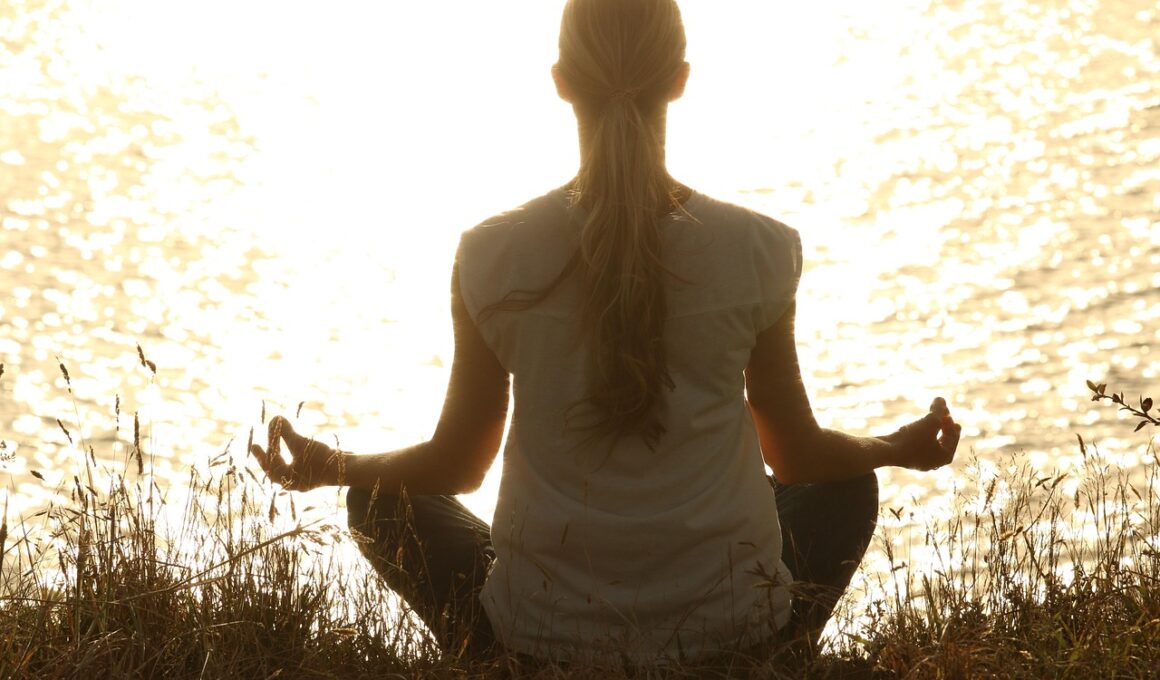Finding Inner Peace: Meditation Retreats in Nature
In a fast-paced world, many individuals seek escape and tranquillity through meditation retreats. These retreats allow participants to connect intimately with nature while exploring the depths of their inner selves. Nestled in serene environments, these locations provide a perfect backdrop for mindfulness practices and self-reflection. Nature has a calming effect, promoting peace of mind and reducing stress. Activities often include guided meditations, yoga sessions, and mindfulness workshops tailored to the needs of participants. Surrounded by lush forests, tranquil lakes, or majestic mountains, attendees can fully immerse themselves in the healing power of nature. Consider incorporating digital detox periods, where participants refrain from using technology to enhance their experience. This promotes deeper connections with fellow meditators and allows for self-exploration without distractions. Emphasizing community, many retreats facilitate workshops and group discussions, allowing individuals to share experiences and insights gained during their time away. Ultimately, these meditation retreats offer a unique opportunity to recharge, recalibrate, and rediscover one’s purpose and direction in life, fostering a profound sense of inner peace and balance.
Types of Meditation Retreats
There are various types of meditation retreats, catering to different preferences and experiences. Some emphasize silent meditation, where individuals spend extended periods in silence to deepen their practice. Others might focus on guided meditation, offering structured sessions with experienced instructors aiding the process. Additionally, there are retreats integrating yoga, breathing techniques, and movement, allowing participants to connect the mind and body effectively. These holistic retreats are especially refreshing and rejuvenating. Longer retreats, lasting several days or weeks, give participants ample time for deep introspection. Short retreats, lasting a weekend or even a day, can be perfect for beginners or those with tight schedules. Many retreats are designed for specific groups; for instance, women’s retreats offer a safe, supportive space for personal growth. Men’s retreats often explore themes of masculinity and emotional expression. Furthermore, spiritual retreats may incorporate elements from various religious traditions, encouraging participants to find their personal spirituality. Researching and selecting retreats aligned with one’s values and intentions is essential, as this greatly enhances the overall experience.
Location significantly influences the vibe and energy one experiences during a meditation retreat. Ideal retreat sites are often remote, allowing participants to disconnect from their daily lives. Common locations include coastal areas, mountainous regions, and tranquil forests, all providing a serene ambiance. For instance, coastal retreats often offer stunning ocean views and soothing sounds of waves, ideal for relaxation and reflection. Mountain locations boast breathtaking landscapes that inspire awe and connection to the natural world; this often encourages introspection in participants. Forest retreats allow one to immerse in nature’s beauty, where rustic cabins and open spaces create unique experiences. Additionally, locations with access to fresh air, sunlight, and greenery enhance the rejuvenating effects experienced during these retreats. Consider looking for retreats that utilize sustainable practices and emphasize environmental stewardship. Eco-friendly accommodations and locally sourced meals often contribute to a holistic and mindful experience. Remember that the right location will resonate with your personal preferences and goals. Engaging with nature increases mindfulness and can significantly improve your overall well-being during your retreat.
Benefits of Attending a Meditation Retreat
Attending a meditation retreat offers numerous benefits that extend far beyond the retreat. Firstly, the experience provides a significant opportunity for personal growth and self-discovery. Being away from daily distractions allows individuals to reflect on their lives and identify areas needing change. Many participants also experience improved mental clarity and emotional resilience. Engaging in regular meditation over several days can reduce stress levels, anxiety, and depressive symptoms, making this experience invaluable to one’s mental health. Secondly, forming connections with like-minded individuals while participating in group activities fosters a sense of community. Sharing experiences and insights can lead to lasting friendships and support networks. Many individuals find inspiration in the shared stories of their peers, thus enriching their personal journey. Physical benefits abound as well; many retreats include healthy meals and exercise programs, encouraging restorative habits. Improved sleep patterns, increased energy levels, and enhanced immune function are also reported by attendees. Moreover, consistently practicing meditation improves focus and enhances overall productivity, positively impacting one’s professional and personal life long after the retreat concludes.
Vegetarian and vegan diets commonly characterize meals prepared during meditation retreats, promoting overall health and vitality. These dietary practices align with the retreat’s mindfulness ethos, encouraging participants to be more conscious of their food choices. Eating plant-based dishes can enhance the detoxification process while also providing energy needed for daily activities. Retreats often feature locally sourced ingredients, ensuring freshness and sustainability. This commitment to sustainability is essential for enhancing the ecological aspects of the experience. As individuals cultivate mindfulness during mealtimes, they learn to appreciate flavors, textures, and the nourishment food provides. Additionally, cooking workshops are commonly integrated, teaching participants how to prepare plant-based meals easily. These workshops can contribute to better dietary habits even after the retreat ends. Furthermore, group meals encourage camaraderie and conversations about individual experiences, creating a supportive atmosphere. Engaging in culinary practices fosters creativity and connection among participants; sharing recipes following the retreat strengthens bonds. Ultimately, a focus on mindful eating enhances the overall retreat experience significantly, promoting well-being physically and emotionally while embedding lasting habits in attendees’ everyday lives.
Planning Your Retreat Experience
When planning to attend a meditation retreat, consider several factors to ensure a fulfilling experience. Start by identifying your main intentions and goals. Are you looking to relieve stress, deepen your meditation practice, or seek inspiration? Knowing your purpose aids in selecting the right retreat type and location. Research various options thoroughly, paying close attention to participant reviews and feedback to gauge the quality of the experiences offered. Establish a budget, as costs can vary widely for retreats. Some might be more luxurious, while others focus on affordability and simplicity. Understanding what you can invest is essential for your decision-making process. In addition, check the schedules and activities of potential retreats to ensure they align with your interests and preferences. Most importantly, don’t hesitate to reach out to retreat organizers with any questions or clarifications that may help in your decision. Being well-informed can maximize your experience, setting the stage for mindfulness and personal growth. Lastly, remember to approach your retreat with an open mind, ready to embrace everything that comes your way.
Reflecting on your meditation retreat experience is essential for integrating the insights gained into everyday life. Many participants find journaling incredibly beneficial for processing thoughts and feelings post-retreat. Writing down reflections allows individuals to articulate emotions that may have been suppressed or unnoticed during their time away. Consider setting aside time weekly to revisit your notes after the retreat concludes; this practice encourages continuous mindfulness. Furthermore, forming a post-retreat support group with fellow attendees can facilitate accountability and shared growth. Regular check-ins allow for ongoing discussions about incorporating meditation and mindfulness practices into busy lives. Sharing experiences and progress with others can significantly boost motivation, reinforcing positive changes. Developing a consistent daily meditation routine is vital for maintaining the benefits of the retreat experience. Even just a few minutes a day can profoundly impact mental well-being and emotional resiliency. Additionally, exploring various meditation styles can keep your practice fresh and engaging. Ultimately, by nurturing the gains made during the retreat, individuals can cultivate lasting inner peace, contributing to a more balanced and purposeful life.



